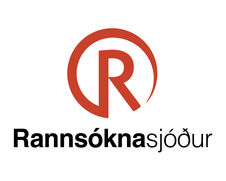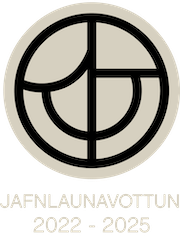Lífsgæði og þátttaka fatlaðra barna og unglinga. Umbreytingarannsókn - verkefni lokið
Fréttatilkynning verkefnisstjóra
Markmið lífsgæðarannsóknarinnar voru: a) að kanna hvernig fötluð börn og foreldrar þeirra meta lífsgæði barnanna, og b) að varpa ljósi á þætti og ferli sem ýmist styðja við eða draga úr lífsgæðum og þátttöku fatlaðra barna og hvernig þeim er viðhaldið.
Rannsóknin byggði á raðbundnu sniði. Í fyrri hluta (kortlagning) var matstækiðnotað til að kanna hvernig fötluð og ófötluð börn meta lífsgæði sín og voru þau borin saman við viðhorf foreldra þeirra. Alls tóku þátt 209 fötluð börn og foreldrar þeirra og 335 ófötluð börn og foreldrar þeirra (pöruð svör). Við könnuðum jafnframt hvernig foreldrar meta þátttöku og umhverfi barna sinna með matstækinu Participation and environment measure. Helstu niðurstöður sýna að fötluð börn mátu líðan sína innan meðalmarka en þó síðri en börn í samanburðarhópi. Foreldrar fatlaðra barna töldu líðan barna sinna mun verri en börnin sjálf gerðu, jafnvel þótt þau væru beðin um að svara eins og börnin myndu gera. Samkvæmt foreldrum tóku fötluð börn þátt í færri athöfnum og sýndu minni hlutdeild en jafnaldrar þeirra heima fyrir, í skóla og úti í samfélaginu. Foreldrar fatlaðra barna óskuðu frekar eftir breytingum á þátttöku barnanna en aðrir foreldrar og tiltóku mun fleiri hindranir, minni stuðning og færri úrræði í umhverfinu. Í seinni hluta rannsóknarinnar (skilningur) öfluðum við gagna með ítarlegum tilviksathugunum með 14 fötluðum börnum á aldrinum 8-18 ára. Einnig fóru fram fjórar rýnihópaumræður með 21 fötluðum einstaklingum á aldrinum 18-25 ára sem ræddu lífsgæði og þátttöku í tengslum við barnæsku sína og unglingsár. Niðurstöður LIFE-DCY rannsóknarinnar sýna hvernig mikilvægir þættir lífsgæða og þátttöku tengjast í mismunandi samhengi, til að mynda hvað varðar þekkingu og völd. Rannsóknin varpar jafnframt ljósi á hvernig viðteknum hugmyndum um eðlilegt líf, fötlun og barnæsku er viðhaldið og áhrif þessa á líf og líðan fatlaðra barna og unglinga.
Enska:
The LIFE-DCY research project had two aims a) to evaluate disabled children's quality of life (QoL) as reported by themselves and their parents, and b), to locate commonalities, differences, and conflicting issues in the processes that may influence disabled children's life quality and participation. A sequential mixed-methods design was applied. In Phase one (mapping) we used KIDSCREEN-27 to study how disabled children evaluate their QoL compared to the perspectives of their parents and those of non-disabled children and their parents. Using the Participation and environment measure we also studied parent perspectives of their children's participation in different social contexts. Altogether 209 disabled children and their parents, and 335 children in a control group and their parents (paired reports) participated. Key findings reflect that the disabled children rated their QoL lower than the children in the control group but nevertheless mostly within the average range. Parents of disabled children evaluated their children's QoL lower on all dimensions than did parents of children in the control group, and the difference was substantially larger than for the children´s self-reported scores. Finally, parents of disabled children rated their children's QoL considerably lower than the children did themselves, even if they were asked to answer “just as their child would.” According to their parents, disabled children participated in fewer activities and were less involved than their peers at home, within school and the community. Parents of disabled children desired more change in their child's participation than did other parents. Also, parents of disabled children much more often reported that characteristics of the environment made participation harder. Phase two (unpacking) consisted of 14 case studies with disabled children aged 8–18 years. Four focus groups with altogether 21 disabled people aged 19–35 years who reflected on life quality and participation in relation to their childhood and adolescence were also conducted. The LIFE-DCY research promotes an understanding of how important aspects of life quality and participation may intersect within different contexts and at different times. The theoretical understandings from this study may also help unpack various aspects of childhood disability in terms of knowledge and power. They enhance comprehension of how ideas about normality and childhood disability are constructed and maintained and how this may affect the lives and well-being of disabled children and youth.
Information on how the results will be applied
In line with our transformative focus, an effort has been made to target political decision makers at various levels, such as by disseminating the findings to policy makers, organizations for disabled children, families, practitioners, and other stakeholders. We have in particular emphasized ways to promote participation and remove barriers for disabled children and young people.
Í takt við umbreytingaáherslur rannsóknarinnar höfum við lagt áherslu á að nýta þekkinguna sem skapast til að stuðla að umbótum og nýsköpun í þjónustu við markhópinn. Við höfum því miðlað niðurstöðum til og átt samtal við stefnumótandi aðila, samtök fyrir fötluð börn og fjölskyldur þeirra, sérfræðinga og aðra. Við höfum lagt áherslu á leiðir til að efla þátttöku og ryðja úr vegi hindrunum fyrir fötluð börn og ungmenni í ræðu og riti.
A list of the project's outputs:
Webpages in Icelandic and English
The following articles are published or in print 2022.
Articles concerning disabled children's quality of life
Egilson, S.T., Ólafsdóttir, L.B., Saemundsen, E. og Leósdóttir, S. (2017). Quality of life of high-functioning children and youth with autism spectrum disorders compared with a control group of peers: Self- and proxy-reports. Autism, 24(3), 187-196. doi: 10.1080/11038128.2016.1198419.
Ólafsdóttir, L.B., Egilson, S.T., Árnadóttir, U. & Hardonk, C. (2019). Child and parent perspectives of life quality of children with physical impairments compared with non-disabled peers. Scandinavian Journal of Occupational Therapy, 26(7), 496-504. doi:10.1080/11038128.2018.1509371
Articles concerning disabled children's participation and environment
Egilson, S.T. (in print). Use of ethnographic data to critically reflect on disabled children's participation and their encounters with rehabilitation services. In Christopher M Hayre , Dave Muller og Paul Hackett (eds). Rehabilitation in practice: Ethnographic perspectives. Springer Nature.
Egilson, S. T., Jakobsdóttir, G. & Ólafsdóttir, L. B. (2018). Parent perspectives on home participation of high-functioning children with ASD compared with a matched group of children without ASD. Autism, 22(5), 560-570. doi.org/10.1177/1362361316630881
Egilson, S.T., Jakobsdóttir, G., Ólafsson, K. og Leósdóttir, T. (2017). Community participation and environment of children with and without autism spectrum disorder: Parent perspectives. Scandinavian Journal of Occupational Therapy, 24(3), 187-196. doi: 10.1080/11038128.2016.1198419
Gunnhildur Jakobsdóttir, Þóra Leósdóttir og Snæfríður Þóra Egilson (2017). Samfélagsþátttaka einhverfra barna: Viðhorf foreldra. Iðjuþjálfinn, 6-13.
Snæfríður Þóra Egilson og Sigrún Jónasdóttir (2021). Algild hönnun: Leiðarljós að jafnræði og tækifærum til samfélagsþátttöku. Tímarit um uppeldi og menntun, 30(2), 115-133.
Articles in which parents' perspectives of health and quality of life of disabled children are compared with children´s perspectives
Hemmingsson, H., Ólafsdóttir, L.B. & Egilson, S.T. (2017). Agreements and disagreements between children and their parents in health-related assessments. Disability and Rehabilitation, 30(11), 1059-1072. doi: 10.1080/09638288.2016.1189603
Articles building upon specific theoretical perspectives
Embla Guðrúnar Ágústsdóttir, Ásta Jóhannsdóttir og Freyja Haraldsdóttir. (2020). Öráreitni og ableismi: félagsleg staða ungs fatlaðs fólks í almennu rými. Íslenska þjóðfélagið, 11(2) 3-18.
Jóhannsdóttir, Á., Egilson, S. T. og Haraldsdóttir, F. (2022). The implications of internalised ableism for the health and wellbeing of disabled young people (in print). Sociology of Health and Illness.
Jóhannsdóttir, Á., Egilson, S.T. & Gibson, B.E. What's shame got to do with it? The importance of affect in critical disability studies. Disability and Society, 36(3), 342-357. https://doi.org/10.1080/09687599.2020.1751076.
Heiti verkefnis: Lífsgæði og þátttaka fatlaðra barna og unglinga. Umbreytingarannsókn / Life quality and participation of disabled children and youth: A transformative study (LIFE-DCY)
Verkefnisstjóri: Snæfríður Þóra Egilson, Háskóla Íslands
Tegund styrks: Verkefnisstyrkur
Styrktímabil: 2017-2019
Fjárhæð styrks: 55,487 millj. kr. alls
Tilvísunarnúmer Rannís: 174299


